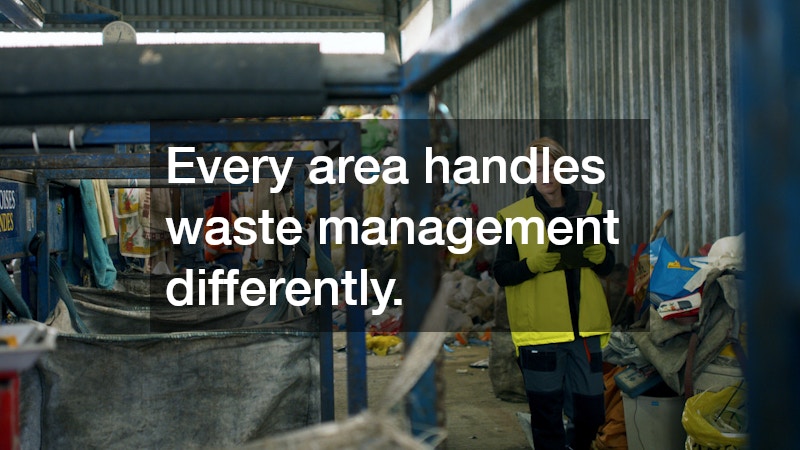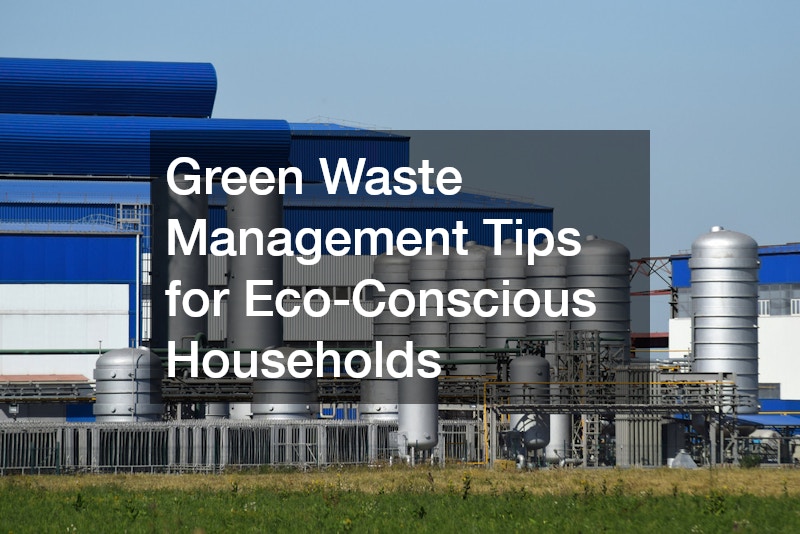Responsible waste management is one of the most effective ways households can reduce their environmental impact. While we often think of recycling and composting as basic steps, managing green waste properly takes a bit more planning. With a few practical habits and local resources, families can minimise landfill contributions and promote healthier, cleaner communities.
Green waste includes grass clippings, leaves, branches, garden trimmings and organic debris. If left unmanaged, these materials often end up in general waste bins, taking up valuable landfill space and releasing methane as they break down. The good news is that with the right approach, most of this waste can be reused or processed into something useful.
Separate green waste from general rubbish
One of the first steps in eco-friendly waste management is properly separating green waste from other household rubbish. Mixing organic matter with plastics or packaging makes it harder to process and less likely to be recycled or composted.
Use a separate bin or designated area in the garden to collect items like grass cuttings, weeds, fallen leaves and small branches. Most councils offer green waste collection services or can recommend local drop-off sites for organic material. Some even provide discounted compost bins or mulchers to encourage households to process their own waste.
Clear labelling and family participation make separation easier, especially when teaching children about sustainable habits.
Start composting at home
Composting is one of the most effective ways to handle green waste on your own property. With a simple compost bin or heap, you can turn garden waste and select kitchen scraps into nutrient-rich soil that benefits plants and lawns.
Composting also reduces your reliance on chemical fertilisers and decreases the need for green waste collection. Add items like fruit peels, vegetable offcuts, coffee grounds and garden clippings to your pile. Avoid meat, dairy and processed foods, which can attract pests and slow the composting process.
For optimal results, balance the mix between green material (wet, fresh waste) and brown material (dry leaves or shredded paper). Turn the pile regularly to help it break down faster and keep odours to a minimum.
Use green waste as mulch
Rather than bagging and throwing away your green waste, consider turning it into mulch. Shredded branches, dried leaves and lawn trimmings can be placed around trees and garden beds to retain moisture, suppress weeds and improve soil quality.
Mulching reduces the volume of waste you produce and helps your garden thrive without added water or chemicals. It’s especially effective during dry periods when soil needs extra help retaining moisture.
Some councils and garden centres offer mulching services or workshops to help homeowners get started. With a basic garden shredder and a bit of practice, you can turn garden clean-up into something beneficial.
Stay informed about local services
Every area handles waste management differently. Local councils often provide information on collection schedules, accepted materials and where to drop off larger loads of green waste.
Some regions run seasonal pickup programs or host community recycling days. Others offer free mulch or compost to residents who participate in recycling programs. Knowing what’s available in your area makes it easier to manage waste responsibly and avoid fines for incorrect disposal.
Check your local council’s website or contact them directly for updates and guides tailored to your region.
Avoid burning green waste
In some areas, burning green waste might seem like a convenient solution, but it’s rarely a good one. Burning releases smoke, carbon emissions and pollutants into the air, contributing to poor air quality and increasing the risk of bushfires, especially during dry months.
In many councils, burning green waste is restricted or prohibited for these reasons. Choosing to compost, mulch or dispose of green waste through approved services is a safer and more environmentally friendly approach.
If you’re clearing a large area or handling storm debris, hire a licensed waste management provider who can remove and process the material according to local regulations.
Encourage community involvement
Individual efforts are powerful, but when whole neighbourhoods adopt green waste management practices, the results are even greater. Share tips with neighbours, organise community compost bins or start a local garden using recycled organic material.
Community gardens and shared composting projects offer a practical way to manage waste and grow local produce. They also raise awareness about the benefits of reducing waste and build stronger local connections.
Schools and community centres are often interested in sustainability initiatives and may already have programs you can join or support.
Effective green waste management is not just about keeping your yard tidy—it’s about making thoughtful choices that protect the environment and support a healthier lifestyle. Whether you’re composting at home, using council services or helping your neighbourhood become more eco-conscious, small actions can lead to big results.
By treating green waste as a resource rather than rubbish, households across Australia can reduce landfill use, lower emissions and create cleaner communities for future generations.


